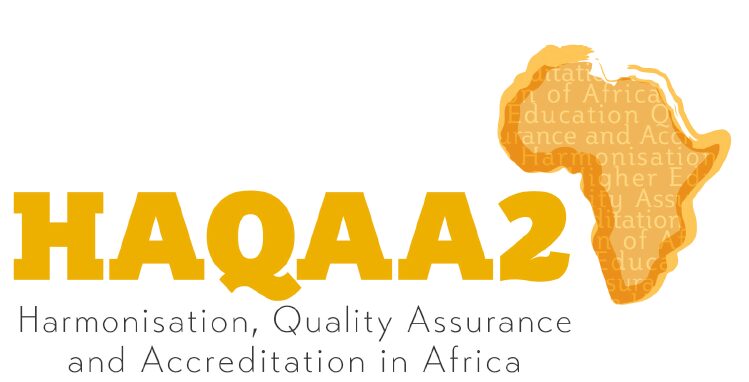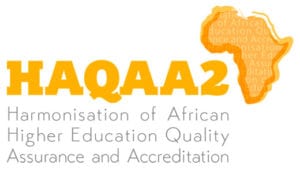As part of the Training Component of HAQAA2, IQA Training Courses were offered under HAQAA2 that:
- Built on/complemented the capacity building and training provided to staff of QAA under HAQAA1;
- Targeted specifically QA professionals in HEI, as they are essential actors in QA systems, both in supporting IQA but also in supporting EQA; They often serve as reviewers for the national QAA when they organise audits and evaluations and are also instrumental in preparing their own institutions to be accredited/evaluated;
- Provided tailored regional approaches to training, by engaging strategic regional partners in the content development and selection of participants;
- Offered the added value of training on IQA in the context of the African continental objectives for higher education, and promoting African tools and frameworks like the ASG-QA;
- Adopted a Train the Trainer approach, to ensure outreach and multiplication of results, which benefited graduates of the HAQAA1 Training Courses and HAQAA2 courses.
- Were delivered virtually, due to the Covid-19 pandemic, yet succeeded in creating cooperation spaces and networking


The Learning Outcomes of the Courses were:
- Participants are familiar with the objectives of the African higher education landscape and more specifically, the PAQAF, the ASG-QA and related tools such as the AQRM etc.)
- Participants are in the position to contextualise regional and international QA frameworks, to discover the linkages between EQA and IQA and to find ways how to turn these standards into practice in a meaningful way.
- Participants are aware of their own function as QA managers and able to reflect on the various roles and responsibilities of different higher education stakeholders including university leadership, ministries and QA agencies, professors and students as well as the labour market,
- Participants understand the concept of quality as well as the different QA models in higher education. They can differentiate between institutional QA culture and EQA processes and understand the important interplay between these two dimensions.
- Participants know the current QA situation in their region as well as common challenges and demands.
- Participants have identified main challenges for QA in their regional and institutional environments and have worked on options for improving their internal systems (change management).
- Participants are familiar with project management tools and able to stimulate and implement reform projects in their institutions.
Key figures on the HAQAA2 IQA Training Courses:
- 95 HEI professionals trained, virtually, in four cohorts and awarded certificates/ induction to the HAQAA Ambassadors Network
- Cohort 1: Ethiopia, Egypt, Libya, Uganda, Rwanda, Tanzania, Sudan, South Sudan, Somalia, Burundi, Ghana, Gambia, Nigeria, Liberia
- Cohort 2: Tunisia, Morocco, Algeria, Mauritania, Senegal, Guinea, Côte d’Ivoire, Burkina Faso, Mali, Benin, Niger, Togo
- Cohort 4: South Africa, Mauritius, Namibia, Eswatini, Lesotho, Mozambique, Angola, Malawi, Zambia, Botswana, Zimbabwe, Seychelles, Sao Tomé e Principe, Cabo Verde, Guinea Bissau
- Cohort 3: Cameroon, Equatorial Guinea, Gabon, Central African Republic, Chad, Madagascar, Congo, RD Congo, Djibouti, Comores
- 25 African experts and 8 EU experts engaged as trainers, with diverse experiences related to QA in diverse contexts

This website comprises a compendium of material developed as part of the HAQAA2 training course IQA-4-Africa – From Pan-African Policy to Practice. The material collated here provides an overview of core topics of higher education and quality management from an international perspective and offers the possibility to use further material to deepen the respective topics.

